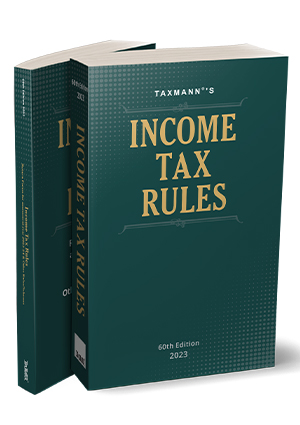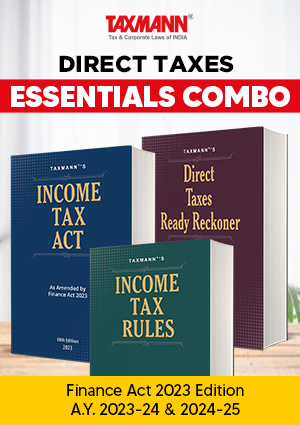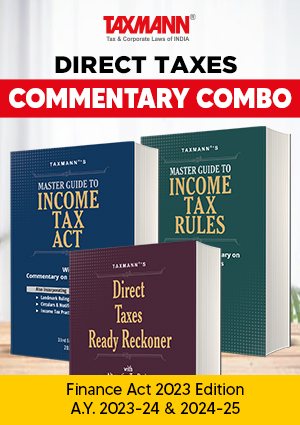[Opinion] Should Interest from Land Acquisition Compensation be Considered Under Section 56(2)(viii)?
- Blog|News|Income Tax|
- 3 Min Read
- By Taxmann
- |
- Last Updated on 17 May, 2024

CA Mukesh Kohli – [2024] 162 taxmann.com 422 (Article)
The Hon’ble Supreme Court in the case of CIT v. Ghanshyam (HUF) [2009] 182 Taxman 368/315 ITR 1 (SC) held that interest on excess compensation under section 28 of Land Acquisition Act form part of enhanced compensation under section 45(5)(b) of Income Tax Act and, therefore are taxable under section 45(5) of the Income Tax Act in year of receipt and the interest on excess compensation under section 28 of Land Acquisition Act is not taxable under the head “Income from other Sources” but the Finance Act 2009 has amended the section 56(2)(viii) and 57(iv) w.e.f. 01-04-2010. The apex court held that interest is different from compensation. Interest paid on excess amount under section 28 of Land Acquisition Act depends upon a claim by a person whose land is acquired whereas interest under section 34 of Land Acquisition Act is for delay in making the payment. The vital difference needs to be kept in mind in deciding this matter. Interest u/s 28 of the Land Acquisition Act, 1894 is a part of enhanced value of the land which is not the case in matter of payment of interest u/s 34 of the Land Acquisition Act, 1894.
Now, the issue is whether after the insertion of section 56(2)(viii) and 57 (iv) of the Income Tax Act w.e.f 01-04-2010, Can the assessee claim that interest received under section 28 of the Land Acquisition Act,1894 will part take the Character of the compensation and will fall under the head “Capital Gains” and not “Income from other sources”.
Now first of all, we see the provisions of section 56(2) (viii), 10(37) and 145B
Section 56 (2)(viii)
The Finance (No.2) Act, 2009 (with effect from 01.10.2010), Clause (viii) of sub-Section 2 to Section 56 of the Act was inserted and the same is extracted hereunder as: –
56. Income from other sources. –
(2) In particular and without prejudice to the generality of the provisions of sub-section (1), the following incomes shall be chargeable to income tax under the head “Income from other sources”, namely: –
[(viii) income by way of interest received on compensation or on enhanced compensation referred to in [sub-section (1) of Section 145-B]
Section 10(37) of the 1961 Act
Incomes are not included in total income.
10 (37) in the case of an assessee, being an individual or a Hindu undivided family, any income chargeable under the head “Capital gains” arising from the transfer of agricultural land, where—
i. such land is situate in any area referred to in item (a) or item (b) of sub-clause (iii) of clause (14) of section 2;
ii. such land, during the period of two years immediately preceding the date of transfer, was being used for agricultural purposes by such Hindu undivided family or individual or a parent of his;
iii. such transfer is by way of compulsory acquisition under any law, or a transfer the consideration for which is determined or approved by the Central Government or the Reserve Bank of India;
iv. such income has arisen from the compensation or consideration for such transfer received by such assessee on or after the 1st day of April, 2004.
Section 145-B of the Act is as under: –
“[145-B. Taxability of certain income. –
(1) Notwithstanding anything to the contrary contained in Section 145, the interest received by an assessee on any compensation or on enhanced compensation, as the case may be, shall be deemed to be the income of the previous year in which it is received.
(2) Any claim for escalation of price in a contract or export incentives shall be deemed to be the income of the previous year in which reasonable certainty of its realisation is achieved.
(3) The income referred to in sub-clause (xviii) of clause (24) of Section 2 shall be deemed to be the income of the previous year in which it is received, if not charged to income-tax in any earlier previous year.]”
Click Here To Read The Full Article
Disclaimer: The content/information published on the website is only for general information of the user and shall not be construed as legal advice. While the Taxmann has exercised reasonable efforts to ensure the veracity of information/content published, Taxmann shall be under no liability in any manner whatsoever for incorrect information, if any.

Taxmann Publications has a dedicated in-house Research & Editorial Team. This team consists of a team of Chartered Accountants, Company Secretaries, and Lawyers. This team works under the guidance and supervision of editor-in-chief Mr Rakesh Bhargava.
The Research and Editorial Team is responsible for developing reliable and accurate content for the readers. The team follows the six-sigma approach to achieve the benchmark of zero error in its publications and research platforms. The team ensures that the following publication guidelines are thoroughly followed while developing the content:
- The statutory material is obtained only from the authorized and reliable sources
- All the latest developments in the judicial and legislative fields are covered
- Prepare the analytical write-ups on current, controversial, and important issues to help the readers to understand the concept and its implications
- Every content published by Taxmann is complete, accurate and lucid
- All evidence-based statements are supported with proper reference to Section, Circular No., Notification No. or citations
- The golden rules of grammar, style and consistency are thoroughly followed
- Font and size that’s easy to read and remain consistent across all imprint and digital publications are applied




